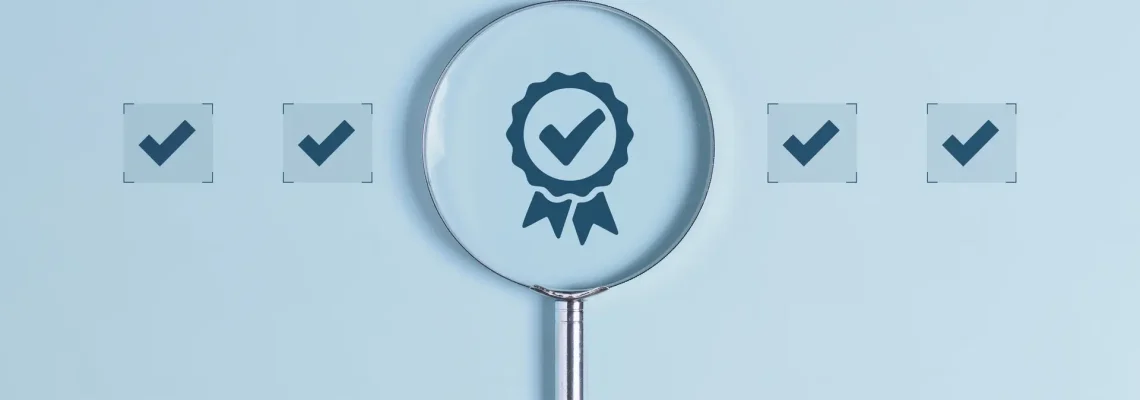
Introduction

There are few things more important in life than good health. So doesn’t it make sense to spend a bit of time researching different health plans in order to make the best decision for you and your loved ones?
The problem for many Australians is feeling overwhelmed by it all. After all, there are so many plans on the market that it can be easy to throw any decisions about health insurance into the too-hard basket. The risk with that mentality, however, is that you don’t know what else is out there – and it could be costing you money and better coverage.
By comparing health insurance plans instead, you can find a policy that matches your current healthcare requirements and your budget, which will give you peace of mind for the future. So let’s explore the importance of comparing health insurance, how to pick the best health insurance plans and how to find the best health insurance rates for your individual circumstances.
Why Comparing Health Insurance is a Must
There’s also the fact that comparing health insurance plans is one of the easiest ways to save money. The cost of premiums, co-pays and gap fees don’t fall under a single umbrella – they differ between providers. Once you start evaluating all the different plans you’re interested in, you can find one that gives you the best balance between cost and services covered.
Yes, you’ll have to spend a bit of time doing the comparison, but it’s an activity that could prevent you from overpaying on a plan that includes unnecessary services, or choosing a cheaper plan that leaves you with huge out-of-pocket expenses later on.

Getting Your Preferred Healthcare Providers
Many health insurance plans have networks of their own preferred providers, but they might not be your preferred providers. Once you start looking into these networks, it could seriously impact your choice of insurance. Comparing plans is the best way to see whether your preferred healthcare providers are covered.
This is especially important if you have an existing relationship with a doctor or need specialised care that’s not available within all networks. There’s a reason why we are so invested in giving our clients the freedom of choice in healthcare providers.
No surprises – Today and into the Future
The fine print in health insurance policies can sometimes hides key details about your cover. Some plans, for example, might exclude certain treatments or have long waiting periods for various procedures. Comparing plans means you can spot these details straight away and avoid any unpleasant surprises when you need to make a claim.
Then there’s the fact that life is full of changes – getting married, having kids, moving to a new city, buying a house or retiring. Each of these big life milestones can affect your healthcare needs. That’s why health insurance shouldn’t be a set-and-forget decision.
Regularly comparing health plans means you can adapt your insurance to these changes. After all, a plan that was perfect for you as a single person probably won’t be suitable when you’re about to start a family.

Portability
Don’t re-serve waiting periods when you switch to a new health fund or policy
“John was immediately covered for a hip replacement in private hospital because he had already served his waiting periods for joint replacements on his old policy”
5 steps to picking the best health insurance plan
1. Sit down and think about your health needs
Before you start comparing and choosing a health insurance plan, you’ll want to take some time to really consider your current health needs. Think about your medical history, how often you tend to visit your GP or specialist, any prescription medications you take, as well as any planned medical procedures in the near future.
If you have a chronic health condition or expect to have large medical bills (i.e. giving birth in a private hospital), you’ll want a plan with comprehensive cover and low out-of-pocket costs. On the other hand, if you’re in good health and don’t tend to need to visit the doctor all that often, a basic plan with cheaper premiums might be a better fit.
2. Review all the plans available
- Basic hospital cover: Just covers the most essential hospital treatments, and the policy itself usually has the cheapest premiums. Suitable for those who want minimal cover to avoid penalties like the Medicare Levy Surcharge or Lifetime Health Cover (LHC) loading.
- Bronze, Silver and Gold tiers: If you’re after something more than just cover for the bare essentials, you can choose a few higher tiers than Basic – whether it’s Bronze, Silver or Gold. While your premiums will be higher, you’ll also have a much broader range of services covered under your policy.
- Extras cover: Includes services like dental, optical, physiotherapy, chiropractic and other therapies that aren’t covered under Medicare. Perfect if you’re someone who regularly uses these services.
- Combined cover: Bundles together hospital and extras cover into one policy. For many people, it’s the most cost-effective way to get the most extensive protection – although at a higher premium.
3. Compare premiums and out-of-pocket costs
While premiums are the most obvious cost of your health insurance, they’re not the only factor to consider. Out-of-pocket costs – also called gap fees or patient payments – can very quickly add up, especially if you need ongoing medical care.
When you’re comparing plans, take a look at the total cost of care – including you’re your premiums and all the expected out-of-pocket expenses. Only by doing a few calculations will get you the clearest picture of your preferred plan’s true cost.
4. Take a closer look at the provider network
The breadth of a particular plan’s provider network may have the biggest influence on your healthcare experience, so it’s not something you should gloss over. Instead, take the time to read through their list of preferred doctors, specialists and hospitals.
If you live in a rural part of the country or have a chronic medical condition, you might also want to check whether the plan covers telehealth services or gives you any freedom to use out-of-network providers.
5. Consider any extra benefits

FHC Tip 1: Shop around to find the best health insurance rates
Don’t settle for the first plan you come across. While it might indeed be the best one for your needs, you’ll never know if you don’t compare it to other plans. Our health insurance comparison service is the only one you’ll need to compare multiple plans at once. See the differences in cover, premiums, out-of-pocket costs and benefits laid out clearly.
Also bear in mind that some health insurance providers will have discounts that can lower your premiums. Sometimes you’ll be entitled to a discount for paying annually instead of monthly, or for bundling your health insurance with other types of insurance. Be sure to ask about any available discounts when comparing plans.
FHC Tip 2: Make sure you review your policy every year
Health insurance rates tend to go up every year, and the services covered in different change might change as well. Price changes to health premiums take place every 1 April, so it’s important to review your plan in the lead-up to this date. Make sure you’re still getting the best rate and that your plan is still meeting your needs. If not, you can always find a better option by comparing and switching.
Conclusion
Comparing health insurance plans is made so easy when you can do everything online. Taking the time to assess your needs before shopping around for the best rates means you can find a health insurance plan that will give you peace of mind while protecting your health. Don’t leave your health cover to chance – start comparing today.

Aaron Savrone, founder of Fair Health Care Alliance (FHCA), is a health insurance expert with over 15 years of experience. Specializing in transparent, customer-focused advice, Aaron launched FHCA in 2017 to address the lack of genuine care in the health insurance comparison space. With a commitment to simplifying complex policies and data, Aaron and the team have earned FHCA top ratings and awards, including a 5-star Google Review score from hundreds of reviews and Best Insurance Comparison Website in 2023 and 2024 (ProductReview).







